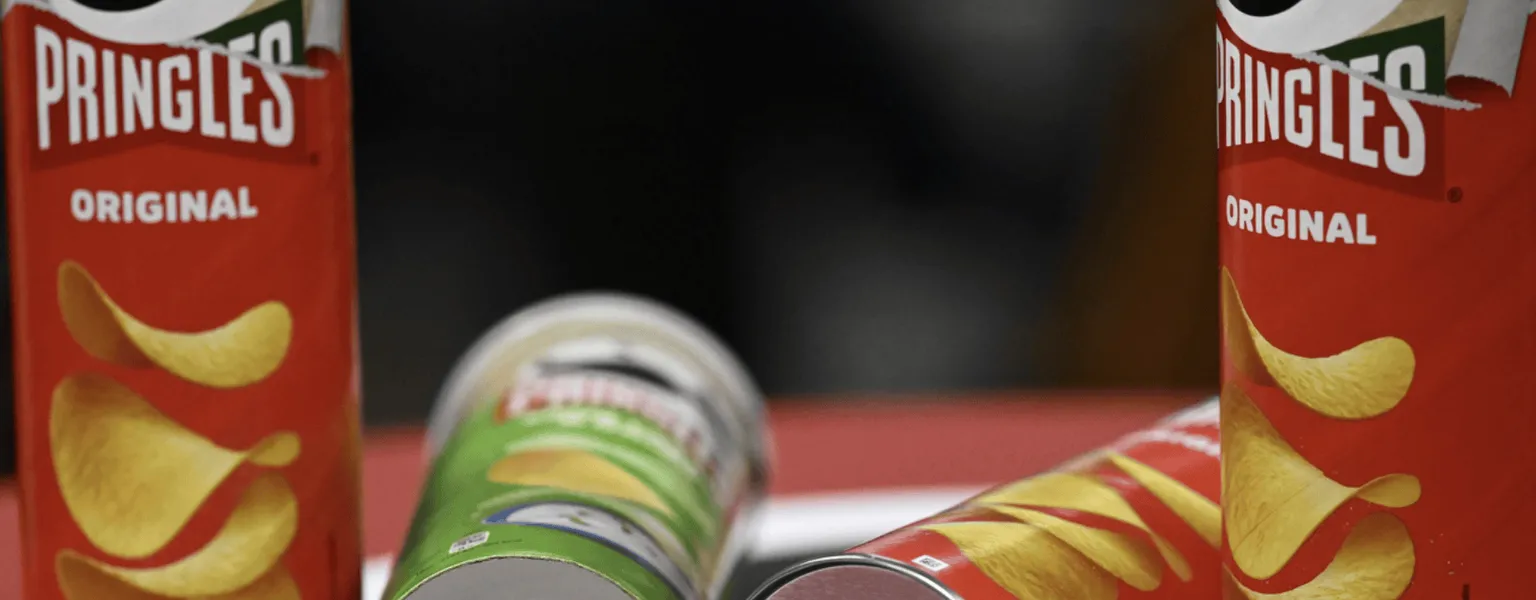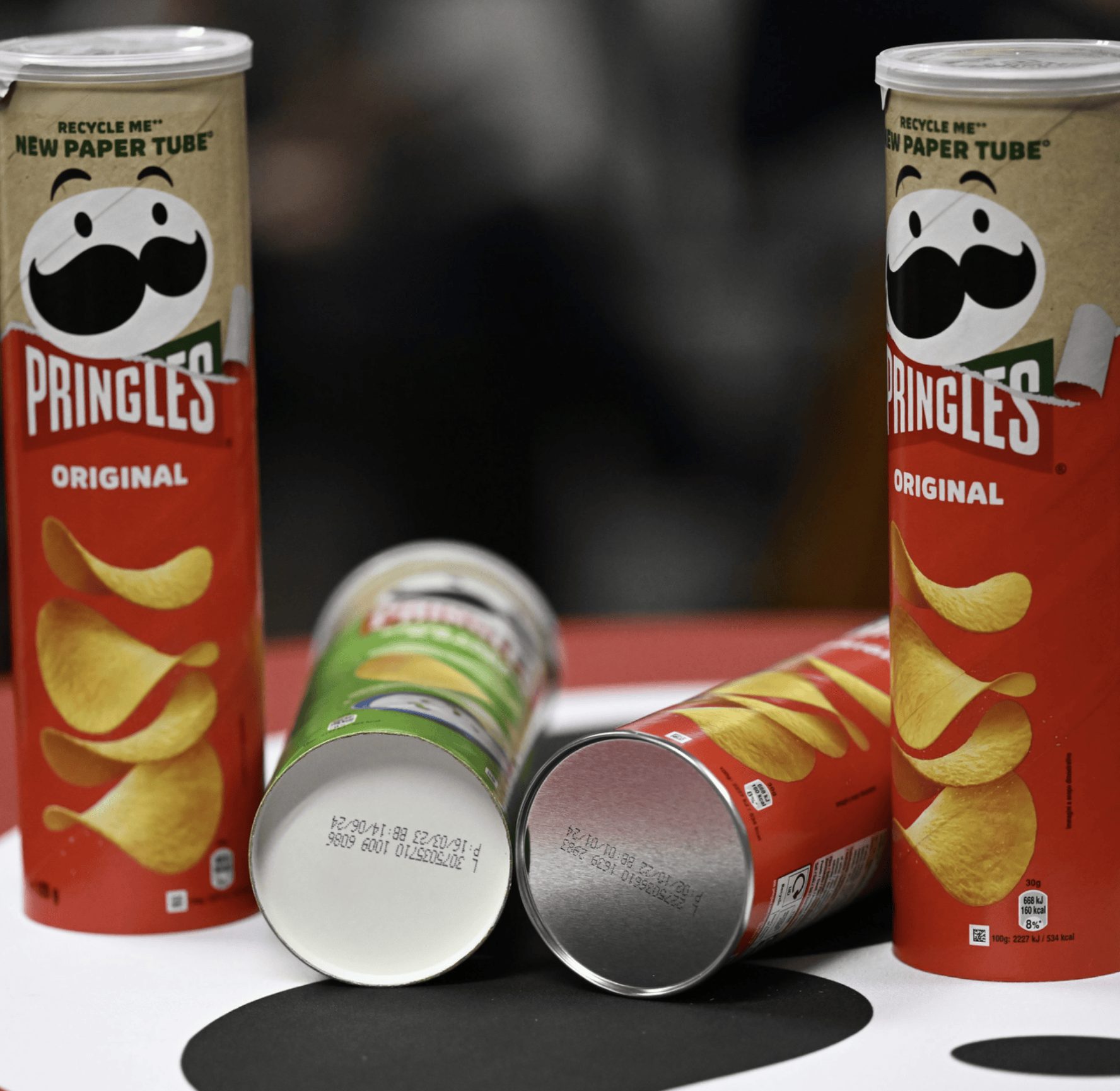Paper-based Pringles tubes now available in Ireland

Sustainability
A new recyclable Pringles tube is now available across Ireland, replacing the iconic design first introduced in the 1960s. The new paper-based tube, which comes with a recyclable plastic lid, is designed to be more environmentally friendly and easier for consumers to dispose of through household recycling.
The updated packaging is made from recycled paper, with a paper base that can be placed directly into home recycling bins. Despite the shift to paper, the tube maintains the same level of protection for the Pringles crisps, ensuring they stay fresh for up to 15 months, as verified by extensive testing from the company’s packaging experts.

This new packaging was rolled out nationwide in August, following trials in Italy in 2019 and the UK in 2020. The introduction of the recyclable tube, made from 90% paper, marks a significant step towards Kellanova’s goal of making all of its packaging recyclable, reusable, or compostable by 2025. The project represents a €100 million investment in new technology aimed at reducing waste and supporting sustainability efforts.
Sarah Ferguson, General Manger, Kellanova Ireland, said: We know people want to reduce their impact to the planet and it’s our responsibility to improve the recyclability of our packaging. We’ve worked hard to develop and test a more recyclable Pringles paper-based tube and we made significant investment in new technology to enable our factories to produce it. Not only is it widely recyclable but it keeps the chips fresh and tasty and protects them from breaking which helps to reduce food waste.
Related News
-
Sustainability
Tesco introduces 'UK’s first' tubeless kitchen foil
-
Sustainability
Walkers trials new sustainable paper-based packaging for Baked crisps
-
Sustainability
Mars debuts paper-based packaging for Mars bars in UK trial
-
Sustainability
Diageo trials paper-based bottles for Baileys Irish Cream Liqueur
-
Sustainability
Kellogg and Albertsons Companies Collaborate to promote sustainable recycling practices




